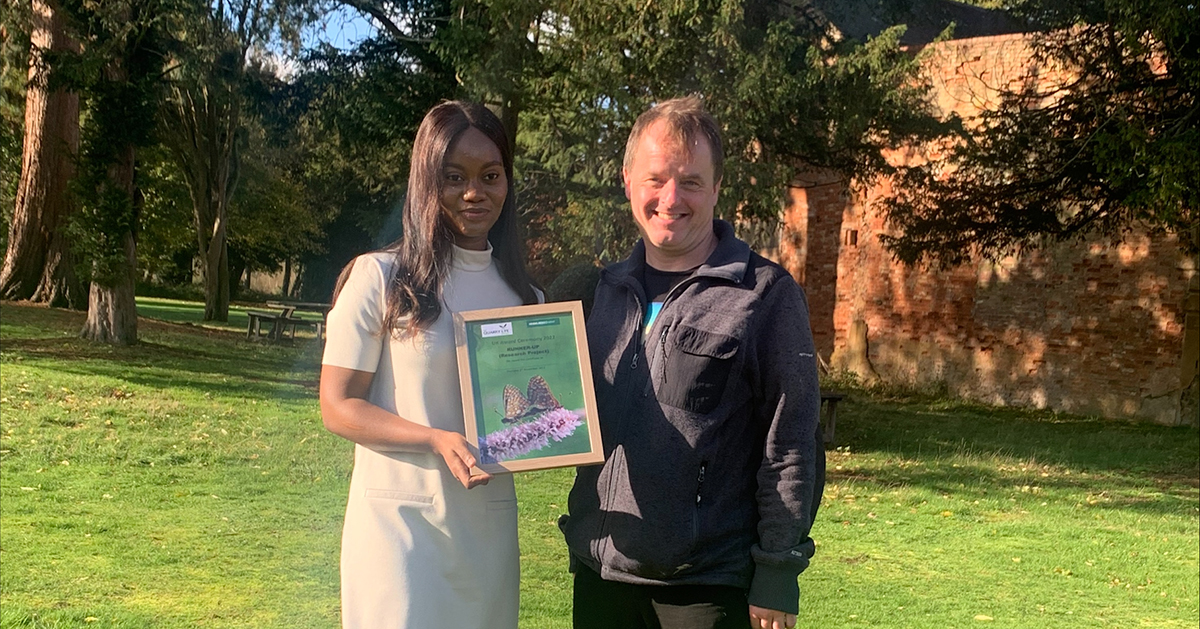Getting started on your business and management thesis or research project
10/07/2025

Doing a research project, whether it’s a thesis, business plan, internship or consultancy project can be a daunting task, and you might have some questions around how to get started. This post is intended to help!
Your supervisor may provide you with ideas for research topics or give you a specific question to answer. If you are doing consultancy or an internship, your company has likely specified a real-world management question for you to work on. Alternatively, you may even be creating a business plan for a start-up or business expansion. No matter which, you will need to research and refine your topic.
Is your topic well-defined?
Have a think about the following points to help you focus:
- Look back at what you have been taught during your Cranfield course and consider if there is a particular area that you found interesting or had questions about. It really helps to pick a topic that is of genuine interest to you.
- Is there a topic that might benefit your future employment plans? Will it add anything to your CV? Will you be able to talk about it in job applications?
- Examine the research interests of the academics in the faculty, particularly those in your course area. Could you build on this?
- Is there a hot topic in the news that relates to your subject area? You could try searching in our news database, Factiva.
- Is there anything you experienced on a work placement, or study abroad, that would make an interesting research subject?
- Are there any potential topic areas which fit with your wider interests or future study plans?
You may also want to take a look at our Writing your thesis and conducting a literature review pages.
What have other students already done?
It’s a good idea to have a look at what has been done by previous students on your course. Previous theses and projects can be a source of inspiration or subject information, and they can also guide the layout and approach of your work, as well as helping you understand what is expected of you. Visit our Theses page to search for theses published at Cranfield, as well as nationally and internationally. Your SAS Lead or supervisor may also be able to give you information on some good Cranfield theses to look at.
If you cannot find a specific thesis, it may be subject to an embargo or security restriction. Please contact us for more advice.
Plan your research – what are you looking for?
Once you have a topic, outline your area and any sub-areas for research. Think about what you already know, or previous research – there might be reading from your modules that you could revisit. For most, your focus will be on searching for literature in our journal databases. However, it might be relevant to look at a wider range of resources, such as:
- Company information and analysis
- Economic data and analysis
- Financial data and analysis
- Industry and market information
Try to structure your research and have a plan of what you need to find. For support with searching, you might like to visit our search tips page, search our blog posts (see our posts on journal searching and researching a market or industry in particular) or the resources in the Study Skills Hub. Our pages on Writing your thesis and conducting a literature review might also help you if you are doing a structured literature review or need more in-depth guidance.
If you are struggling to find useful information, or would like a refresher in using our specialist databases, please contact your Business Librarian.
Brush up on essential skills
To refresh your knowledge on finding, evaluating and using information, take a look at the Study Skills Hub. Check out our academic language support pages to learn about ways to improve your writing skills. Book yourself a place at one of our online or in person training courses to learn more about researching, writing, and referencing.
If you need to carry out a survey as part of your research, you may wish to make use of Qualtrics software available from IT. Please contact the IT service desk if you have any questions about using it. Some hints and tips on creating surveys can be found in the Cranfield Study Skills Hub.
Keep up with new research in your topic area
Consider setting up email alerts based on your searches in our databases. They will keep you informed of any new research in your area. Check the ‘help’ section of your favourite databases to see if they offer search alerts – our journal databases, EBSCO and ProQuest, offer search alerts and you can use our blog post, Unlock your full searching potential with a personal account in EBSCO or ProQuest, to find out more about setting these up.
Keep track of references
For larger written projects, reference management software can be really useful. In the Library, we’re keen on using Mendeley – free online software which allows you to store, group and annotate articles, but there are other software such as Zotero which we also support. They can both be used to help format your references and reference list in a specific format – including APA7, which is used in the School of Management.
Our tips:
- Use the annotation and notes tools to record your thoughts on each article – you can then review them when it comes to writing up.
- Use the tags and collections functions to organise your articles – perhaps by topic or research area?
- Install a web importer so you can add online content including journal articles, videos and webpages really easily.
- Remember to check the data for each item in Mendeley for accuracy. Read our advice on referencing and Mendeley or take a look at Zotero
Formatting and submitting
You can find a range of guidance on MyCranfield explaining how to format and submit your thesis, including templates. View the thesis guidance.
Off-site access
You should be able to access all our resources (with the exception of Bloomberg) when off-site. Remember to use your Cranfield login and ideally go via the our website to successfully log in to our databases.
Stay connected
Always check with your thesis supervisor if you need specific advice about course requirements as these do differ.
Please remember we are always here to help you as much as we can. Do not hesitate to get in touch with us if you have any questions, or if you just need to talk things over with a friendly face. We are happy to help in person, via email or via Teams, whichever you prefer.
Good luck with your research!
Featured image from Pixabay.
Categories & Tags:
Leave a comment on this post:
You might also like…
Executive Insights: Studying Logistics and Supply Chain While Leading a Business
Q&A with Rory Comerford, Managing Director, Capcon Limited “I chose to study the part-time Executive Logistics and Supply Chain Management MSc at Cranfield to advance my career and gain a deeper understanding of this ...
Too much to do? Can’t get your thoughts down on paper?
Our Study Skills Hub has two sections that may be able to help you! In Time Management we have some great tips on how to manage your time, to prioritise, and de-stress. First of all, ...
How do I cite… quotations from video content in the APA7 style
When you quote from another source in your writing, you would traditionally include a page number in your in-text citation. But what do you do when there are no pages? How would you cite a ...
Using what you read in what you write – Summarising, paraphrasing and quoting other authors
University life involves a serious amount of reading and writing. We study the work of other people to inform ourselves about a topic. When we then re-use that knowledge to create our own work, we ...
Referencing in APA7: Using shortened URLs
As you may be aware, when you are referencing a website or any internet-based source you need to include the source URL. For most conventional reference lists, it is fine to include the URL or ...
Quarry Life and Cranfield Life
It might be thrilling to push yourself past your comfort zone, but it can also leave you feeling anxious and self-conscious. What if this is unsuccessful? What if I'm not as talented as I ...






